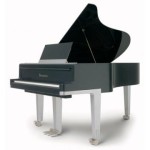Piano Buying Tips
 As the holiday season begins, I am getting more enquiries than usual from students and friends interested in buying a piano. Most shops are starting their holiday advertising campaign, hoping to fill many living rooms with their pianos for this holiday season. Understandably, most people do not want to spend a fortune, yet want to make sure they are making a good investment. With many brands available to choose from, most parents are lost with options.
As the holiday season begins, I am getting more enquiries than usual from students and friends interested in buying a piano. Most shops are starting their holiday advertising campaign, hoping to fill many living rooms with their pianos for this holiday season. Understandably, most people do not want to spend a fortune, yet want to make sure they are making a good investment. With many brands available to choose from, most parents are lost with options.
Buying a piano is like buying a car; they may all take you from point A to B, but some cost a lot more than others. As to brands, there are many to suit every budget. Personally, I do not recommand anything that needs to be plugged into the wall in order to produce sound, so we are talking only about acoustic pianos here. Here are some tips:
Piano Buying Tip #1: Don’t buy for looks! Don’t buy a piano because ‘it looks good’. Baby grands may be more pleasing to the eye, but a good upright can cost more, sound better, and play better than a cheap baby grand. If you are buying a piano for musical reasons, because your child is taking piano lessons, then looks is not the most important criteria.
Piano Buying Tip #2: Do your own research. Some shops only carry certain brands. Some brands are heavily promoted because they provide the biggest profit margins.
Piano Buying Tip #3: Play before you buy! This sounds logical enough, but it is amazing how many people don’t do this. Never buy from a catalogue! Every piano is different and unique; unless it is physically impossible, always play the actual piano you are buying before you pay for it!
Piano Buying Tip #4: New is not always better. It is possible to find well maintained, used pianos that are of reputable brands. Personally I believe buying a used piano of a good brand is a better investment than buying a new piano of a cheap brand.
Piano Buying Tip #5: Choose a reputable brand. How do you know if a brand is reputable? Read Tip #2 above! Do your own research. I do not trust companies that repackage themselves every so many years and sell under a different name. There are exceptions, but I would be careful with companies that rebrand and sell only in certain countries.
Piano Buying Tip #6: Seek advice. If you know nothing about pianos or music in general, seek advice from your child’s piano teacher, ask a friend who is a musician, or invest in a piano technician to check out the piano. This is especially important if you are spending a significant amount, or buying a used piano.
Piano Buying Tip #7: Budget for tuning and accessories. Remember to factor in regular tuning costs, moving costs, and other items you may need – bench (preferably adjustable), reading light, cleaning accessories, lesson costs, sheet music etc. Some shops throw in freebies, if not, negotiate!
Piano Buying Tip #8: After service. If you are buying from a shop, ask about warranty, trade up options, and any other benefits that may be available, including referral fees should you happen to have many friends who are also looking to buy.
Piano Buying Tip #9: Buy the best piano you can afford! Do not buy a piano more than you can afford, as you will end up loosing it. Do not buy a cheap piano if you can afford better, as you will end up loosing money trading in the cheap piano later.
Piano Buying Tip #10: Enjoy your purchase. Make music! Don’t let your piano collect dust!
I hope the above tips will help you find the piano that is just right for you! Good luck in your search!

My husband and I are looking for a piano for our little niece to start taking lessons and we don’t know the first thing about purchasing one. I like your tip about playing it before buying. Since we are new to the piano scene it sounds like playing it would allow you to get a feel for what it will sound like and whether it’s in tune or not.
Really useful tips. It gave me tremendous help in finding a right one for my kid!